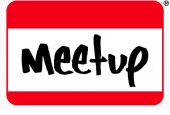I just read an intriguing news story out of Europe, where France is about to initiate a strategy to combat illegal downloading by partially subsidizing a music subscription download card for 18 to 25 year olds. This got me thinking again about the whole issue of piracy in the digital sphere.
In the music industry there are two opposite camps when it comes to the matter of unpaid access to music. On the one hand sit the bigger labels, publishers and the royalty collection organizations that represent them who seem to have a penchant for monetizing every last usage of music, adopting a “fear of loss” attitude in reaction to the advent of digital. On the other are many independent labels and self-published artist-writers who, seeing the writing on the wall when it comes to the reality of ongoing rampant file sharing and the borderless digital world, have more comfortably moved beyond that mode of thinking. In fact, for their very survival they see it as absolutely necessary to embrace what is happening and turn it to their advantage.
Allowing music to be accessed by consumers without impediments, often even for free, has become a mantra of sorts for many independents as their traditional world of distribution, promotion and marketing has been turned upside down by digital technology. They see the Internet and mobile more as an avenue for increasing exposure and creating demand than as a primary direct revenue source and are inclined to rely on things like touring, off-stage CD sales, sales of other merchandise, sync placements, endorsements, sponsorships and anything else that cannot be digitally duplicated to generate money.
Chris Anderson of Wired provided this perspective at the Midem music conference in Cannes: “Piracy is the wrong word for what we are seeing online and we should not stigmatize it. Artists want to be heard and 99.9% of them are not well served by the current system, which serves the minority of successful artists. The enemy for most artists is not piracy but obscurity. Anything that gets them exposure is a good thing, even if it does not convert into dollars and profit.” [Midem News, January 22, 2007]
Collectives, in concert with some bigger publishers and labels and partly as a response to unauthorized commercial websites disseminating music tracks for free or next to nothing, have been trying for years to come up with digital rights management tools that can ensure that no one receives and uses any music for free.
Thus it is that you have two polar-opposite philosophies that have made for some fractious interchanges between the camps and, depending on which side of the fence you sit on, counter-productive initiatives.
Some stakeholders, myself included, think that publishers, labels and collectives should be employing carrots instead of sticks, incentives rather than restrictions, to get people on board with the idea of paying for music, utilizing initiatives that treat the consumer as a valued client instead of the enemy. Good on you, France.





